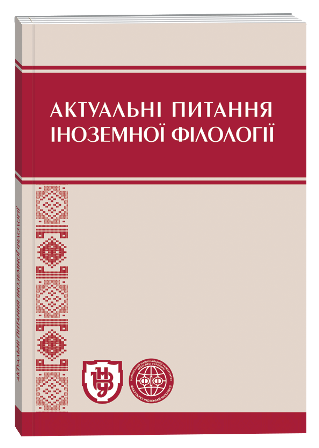POINT OF VIEW AS A MEANS OF MODELLING THE NARRATIVE
Keywords:
narrator, narrative instance, receptive horizon, narrative strategy, point of view, meaning of a literary workAbstract
The article investigates one of the important analytical categories of the narrative discourse, which is the point of view. The approach towards understanding the point of view is connected with the understanding of the perspective that distances the very point of view and the event. Theoretical grounds and the research perspective of this category are based on three main aspects: the concept of the event and its narratological projection, the differentiation of the reception of a certain event and its transference, as well as the differentiation of the point of view according to the levels essential for presenting a narration. It is shown that the complicated complex of author’s intentions, which serves as a basis for objective factors of literary work perception, motivates and directs the receptive position. At the same time, the independent life of a literary work beyond this authority activates reading subjectivity and comprehension of narrative situations. The configuration of the event takes on a special status, and the point of view becomes a means of fixation of the most significant questions formulated or outlined by a literary-fiction work. The point of view gives a wide range of indicational signs that reveal the position either of a narrator or of any of characters or specify “the places of not-telling-enough” in the text. Main levels of presenting the point of view (perceptive, ideological, verbal) are distinguished according to the type of narrator that dominates in a certain literary work. To sum up, the autonomy process of a meaning of a literary work is above all caused by the presence of a regulated system of the point of view implementation in its matter.
References
Адорно Т. Теория эстетики / Т. Адорно. – К. : Основы, 2002. – 518 с.
Выготский Л. Психология искусства / Л. Выготский. – М. : Искусство, 1986. – 573 с.
Кузнецов Ю. Імпресіонізм в українській прозі кінця ХІХ – початку ХХ ст. : проблеми естетики і поетики / Ю. Кузнєцов. – К. : Зодіак-ЕКО, 1995. – 304 с.
Мацевко-Бекерська Л. Українська мала проза кінця ХІХ – початку ХХ століття у дзеркалі наратології : монографія / Л. Мацевко-Бекерська. – Львів : Сплайн, 2008. – 408 с.
Мацевко-Бекерська Л. Наративні стратегії малої прози (на матеріалі української літератури кінця ХІХ – початку ХХ ст.) : дис. … д-ра філол. наук : 10.01.01 «Українська література»; 10.01.06 «Теорія літератури» / Л. Мацевко-Бекерська. – Київ, 2009.
Папуша І. Що таке наратологія? (огляд концепцій) / І. Папуша // Наративні виміри літератури : матеріали Міжнародної конференції з наратології, (Тернопіль, 23–24 жовтня 2003 р.) / [упор. І. Папуша] // Studia methodologica. Вип. 16. – Тернопіль : Редакційно-видавничий відділ ТНПУ, 2005. – С. 29–46.
Руднев В. Морфология реальности. Исследование по «философии текста». Серия «Пирамида» / В. Руднев. – М. : Русское феноменологическое общество, 1996. – 207 с.
Ткачук О. М. Наратологічний словник / О. Ткачук. – Тернопіль : Астон, 2002. – 173 с.
Успенский Б. Поэтика композиции. Структура художественного текста и типология композиционной формы / Б. Успенский. – М. : Искусство, 1970. – 225 с.
Шмид В. Нарратология / В. Шмид. – М. : Языки славянской культуры, 2003. – 312 с.
Lintvelt Japp. Essai de typologie narrative. Le «point de vue». Thoerie et analise. – Paris, 1981.
Rimmon (-Kenan) Shlomith. Narrative Fiction. Conemporary Poetics. – London, 1983.
Downloads
Published
How to Cite
Issue
Section
License
Copyright (c) 2025 Лідія Мацевко-Бекерська

This work is licensed under a Creative Commons Attribution 4.0 International License.







